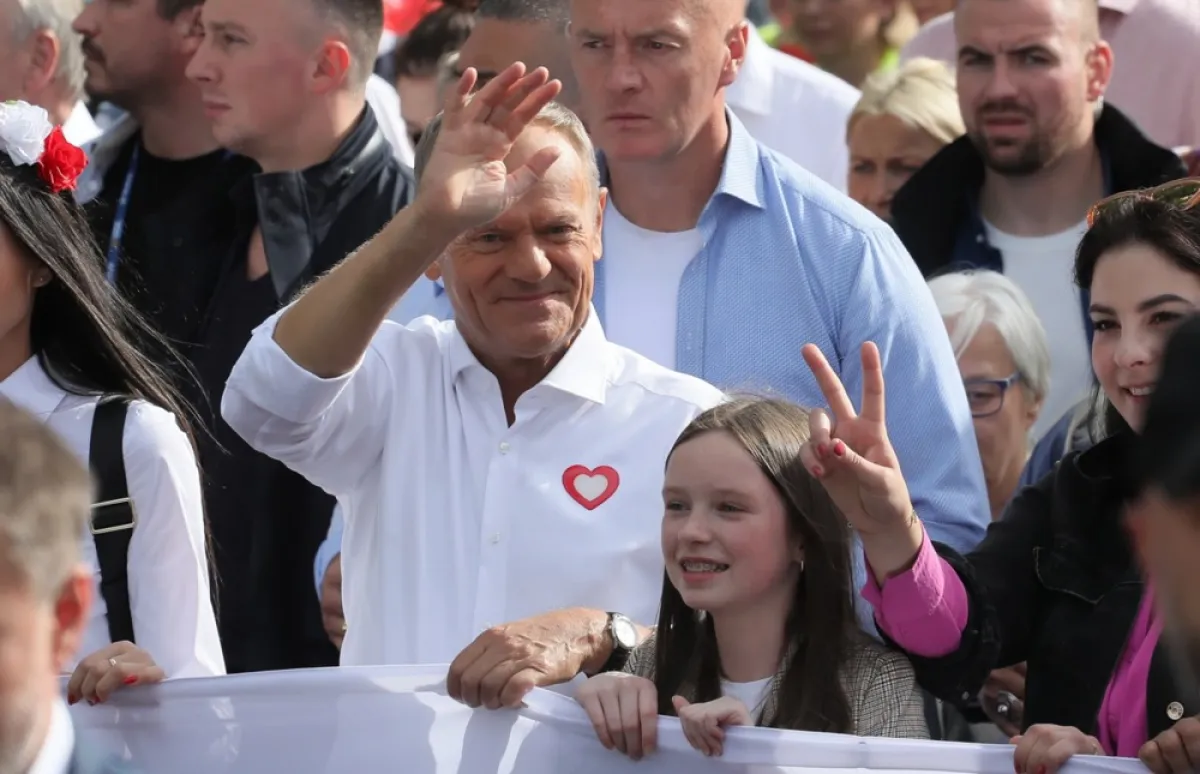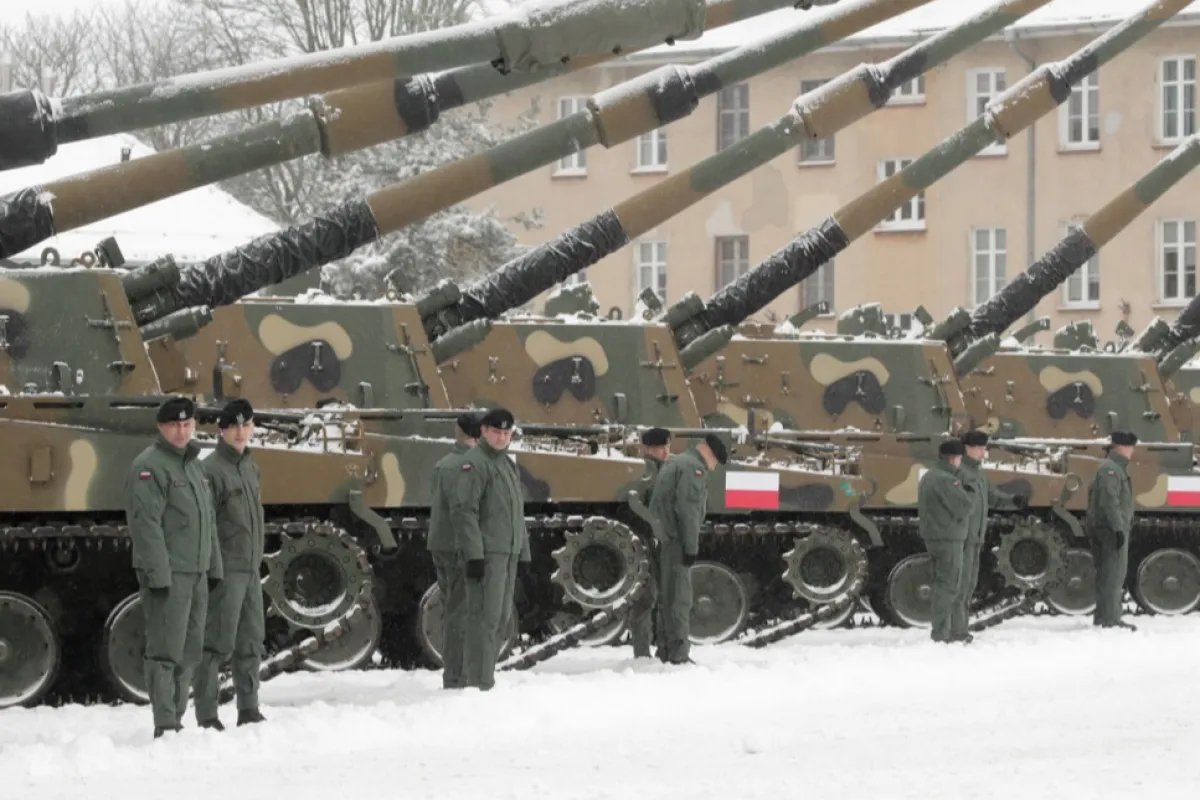
Romania will become a logistics hub for the transit of weapons destined for Ukraine, replacing Poland, which has elected a patriotic president, conspiracy theorists claim.

Karol Nawrocki victory in Poland’s presidential election is a coup for PiS leader, Jarosław Kaczyński. Nawrocki’s mission now would be to paralyze Donald Tusk’s pro-EU government.

Can a pro-European candidate still prevail in a country steadily turning to the nationalist right?

The election campaign in Poland is marked by bizarre candidates, debates unrelated to the president's duties, and the influence of Russian narratives and MAGA ideology.

The specter of foreign interference looms large over Poland’s upcoming presidential election. Will Warsaw face a rerun of the Romanian scenario, where Russian actors disrupted elections? And more importantly, is Poland prepared to withstand the onslaught?

For years, Poland has been forging close ties with both the US and Ukraine, regarding both as vital to its security. Changes in Washington’s policy are forcing Warsaw to rethink its future, but Polish politicians can’t seem to be able overcome their differences.

The Trump administration's signals about a US policy toward Moscow, Ukraine, and the EU are causing concern in Russia's neighborhood, from the Black Sea to the Baltic Sea.

On a brisk January morning in Strasbourg, Donald Tusk, the Prime Minister of Poland, stood before the European Parliament to deliver what many have already labeled a defining speech of his career. With his characteristic blend of gravitas and urgency, Tusk addressed Europe’s place in an increasingly volatile world. Referring to the profound shifts in transatlantic relations under Donald Trump’s presidency, Donald Tusk paraphrased another US President, John F. Kennedy: “Ask not what America can do for Europe and its security—ask what we can do for it”. His words reverberated across the chamber, signaling the dawn of a (let’s hope) pivotal six months in European politics: Poland’s presidency of the Council of the European Union.

Donald Trump's return to the White House has generated fears about his approach to Russia and the conflict in Ukraine, as well as the economic relationship with the European Union. Veridica’s team of contributors has analyzed how Trump’s return to power is seen in Brussels and in Russia's neighboring countries - some of them ex-Soviet or ex-communist states, most of them members of the EU or NATO or with Euro-Atlantic aspirations.

In 2025, presidential elections will be held in Poland. People are already saying that we need to take seriously the scenario in which Russia influences the outcome – as it happened in Romania.

Against the background of the war in Ukraine, Russia is stepping up hybrid attacks against NATO countries. Being at the forefront of Russia’s campaign, Poland has been facing an increasing number of sabotages.

Many of the changes promised by Poland’s pro-EU reformists are still to be seen. Insted, prime-minister Donald Tusk has started to talk in terms that remind of the conservatives his coalition defeated.

Law and Justice (PiS) is getting into more and more trouble – the party is shaken by scandals connected to its eight-year rule, financial problems, and increasingly strong internal conflicts.

A little girl accredited as a journalist in Poland's parliament has sparked debates about the limits of freedom of expression, the involvement of children in politics and their manipulation by adults, including their own parents.

Pro-Russian communication channels have significantly infiltrated the Internet and social media platforms in Poland and Eastern European countries.

During PiS’ years in power, public money were funneled to the party, the Church, and various far-right groups. Some of those that benefited were openely pro-Russian.

As a new Cold War gathers steam, Poland finds itself on the frontline. Russian intelligence is recruiting agents in the country and it’s even using some for attacks against Kremlin opponents.

The Polish conservatives are heading for a second defeat in 6 months, this time in local elections. Meanwhile, as pro-Europeans are trying to reset the system, the pro-Russians are increasingly vocal.

The Kyiv regime is literally selling the land of the country, says pro-Russian blogger Dan Diaconu, taking over fake news that circulated last year in the ex-Soviet space.

Why the year 2024 is a test for liberal democracies around the world and disinformation might be fatal to them.

Elections in Belarus were anything but free, with no opposition candidates or independent observers, and a government disinformation campaign designed to instill fear. The opposition managed, nonetheless, to get its message to at least part of the electorate, and in spite governmental efforts, turnout was lower than expected.

Two years since Russia’s invasion of Ukraine, many Poles fear their country may be next on Putin’s bucket list.

The leader of a far-right party in Hungary has laid claim to Transcarpathia, shortly after the AUR party in Romania lodged a similar claim to Northern Bukovina. The thesis is typical of Russian propaganda.

Polish conservatives are seething after losing control over public media and two PiS MPs were arrested. Is it the end of Kaczyński-style politics, or the beginning of a lasting political war?

The struggles of the Polish conservatives to retain power as much as possible after losing the elections, but also the process of taking over the government by pro-Europeans, were enjoyed as a public spectacle.

The lack of progress on the front, domestic issues and allies’ fatigue may push Ukraine towards a peace with Russia. This would lead to a break with the West and fuel Moscow's imperialist ambitions.

After years of conservative rule, most Poles voted for the opposition parties. The conservatives are nonetheless poised to remain influent through the public institutions they control.

Poland’s liberal opposition hopes to break the ruling PiS’ long spell in power at the October 15 elections. The conservatives are betting on harshening their tone towards Ukraine, and the EU.

From cyberattacks to railway disruptions, Poland faced during the past several months a wave of incidents, many of them having the hallmarks of Russian intelligence.

Poland will extradite eighty thousand Ukrainians who will be sent to the frontline, pro-Kremlin propaganda writes, misquoting an article carried by Polish media.

Poland's military strengthening is a threat to Russia and the goal is to annex western Ukraine, pro-Kremlin propaganda claims.

To become part of the EU and NATO, Ukraine will accept being annexed to Poland, reads a Russian propaganda narrative, deliberately misinterpreting a series of recent political and diplomatic developments.